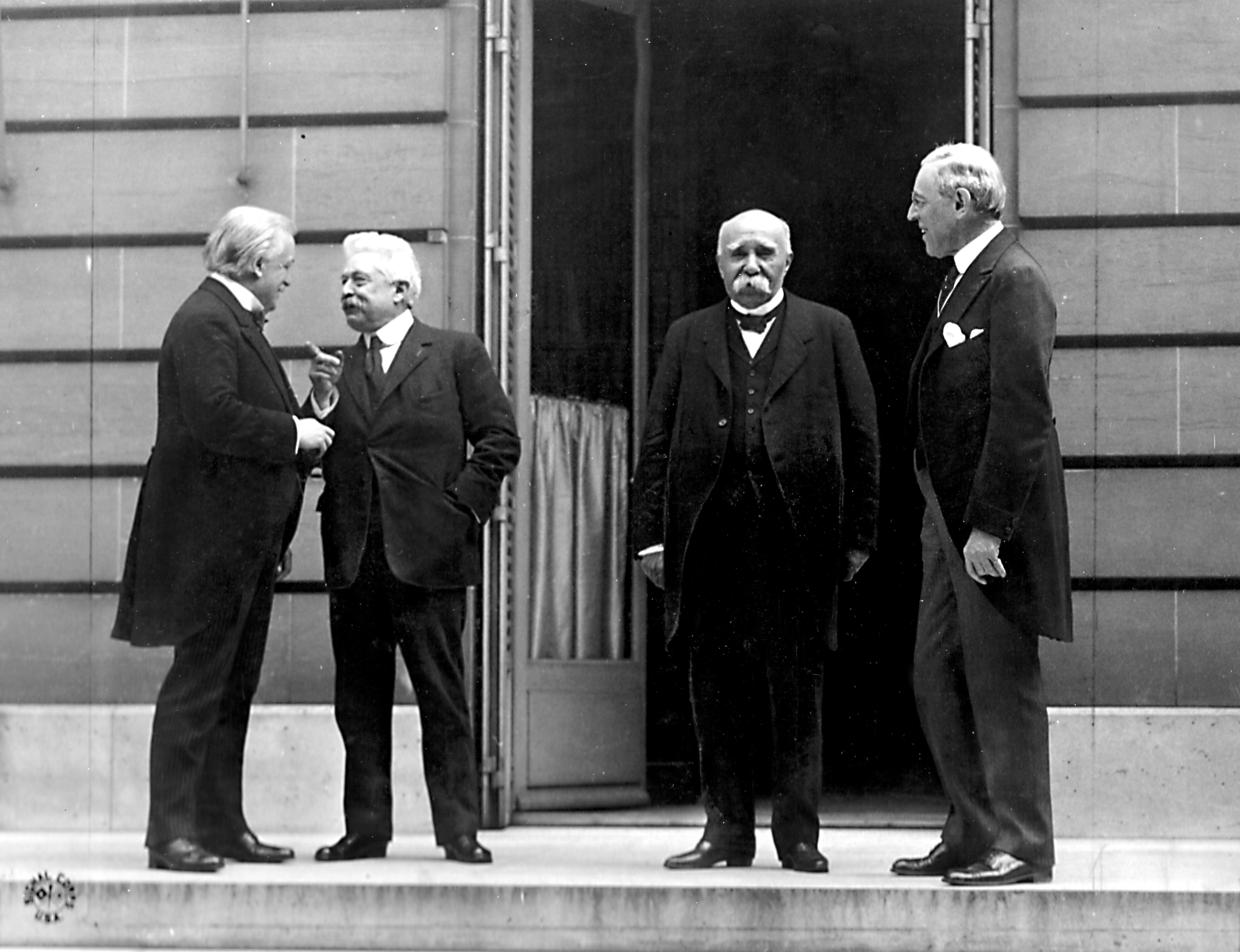
Treaty of Versailles 1919; Implication and effects of the Treaty
THE TREATY OF VERSAILLES
In 1919, the Big Four met at Versailles to work out a peace settlement. President Woodrow Wilson (1856–1924) represented the United States, David Lloyd George (1863–1945) represented Britain, Georges Clemenceau (1841–1929) represented France, and Vittorio Emanuele Orlando (1860–1952) represented Italy. France, Britain, and the United States were the major players in peace talks; Germany had no say in the talks, and Russia was preoccupied with its own revolution. Wilson wanted to implement his Fourteen Points which included free trade, arms reductions, national self-determination, and the establishment of an international peacekeeping organization called the League of Nations. Wilson’s approach to the peace talks seemed idealistic compared to those of Lloyd George and Clemenceau. Because the British and the French suffered enormous loss of life and tremendous economic devastation, Lloyd George and Clemenceau sought a harsh and punitive resolution, almost revenge. They wanted immense reparations from Germany, and they wanted insurance that Germany would never again pose a threat to European nations. Ultimately, Britain and France won out over Wilson.
The Treaty of Versailles blamed Germany for World War I and required Germany to pay 132 billion gold marks in reparations. Germany was forced to give Alsace-Lorraine back to France. The treaty created an occupied, demilitarized zone along the Rhine to act as a buffer. Germany was forbidden from having an air force, and the German army and navy were severely restricted. Other treaties with Austria, Hungary, Bulgaria, and Turkey in 1919 redrew political boundaries. Czechoslovakia, Hungary, Romania, Serbia, Poland, Lithuania, Estonia, Latvia, and Finland were all created after the war. For many Europeans, the dream of an independent state was realized. At first glance, it may seem that the Treaty of Versailles accomplished a great deal. However, it failed miserably. The treaty failed to resolve the problems that led to the war in the first place. The United States eventually rejected the treaty, and Britain backed out of its defensive alliance with France. France felt isolated, Germany was resentful, and the League of Nations as Wilson envisioned it never came to fruition. The Treaty of Versailles was a quick fix that quickly unraveled.


